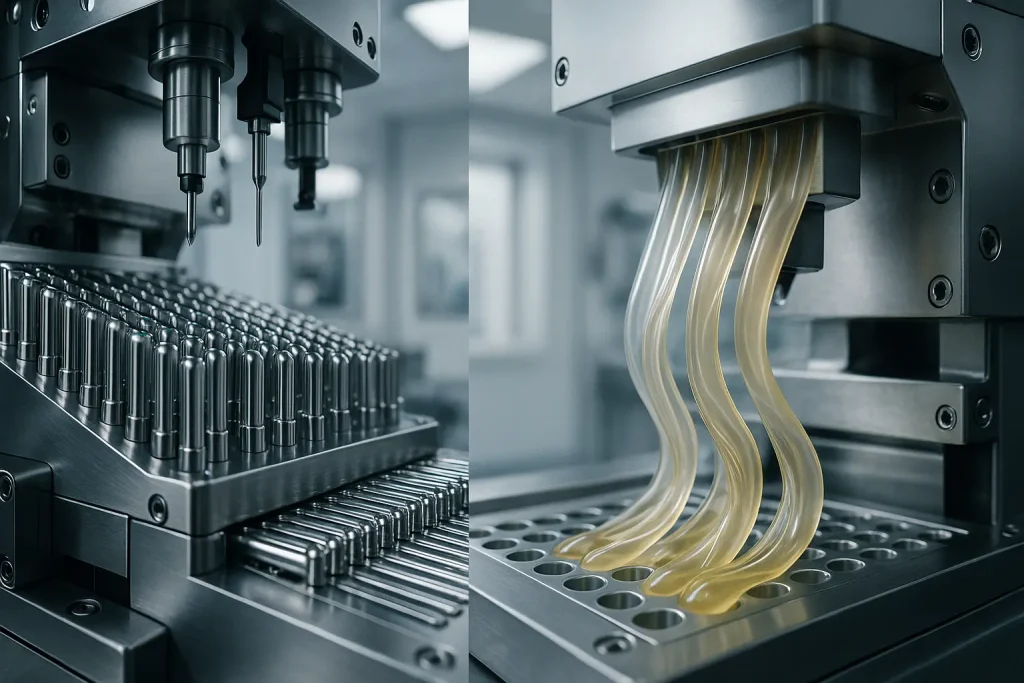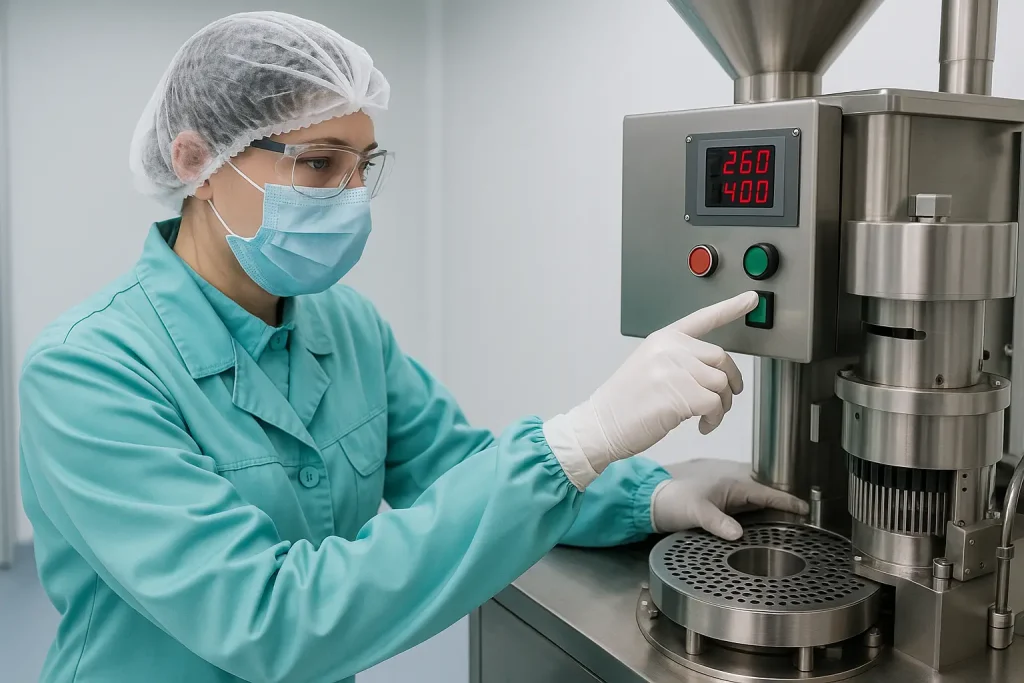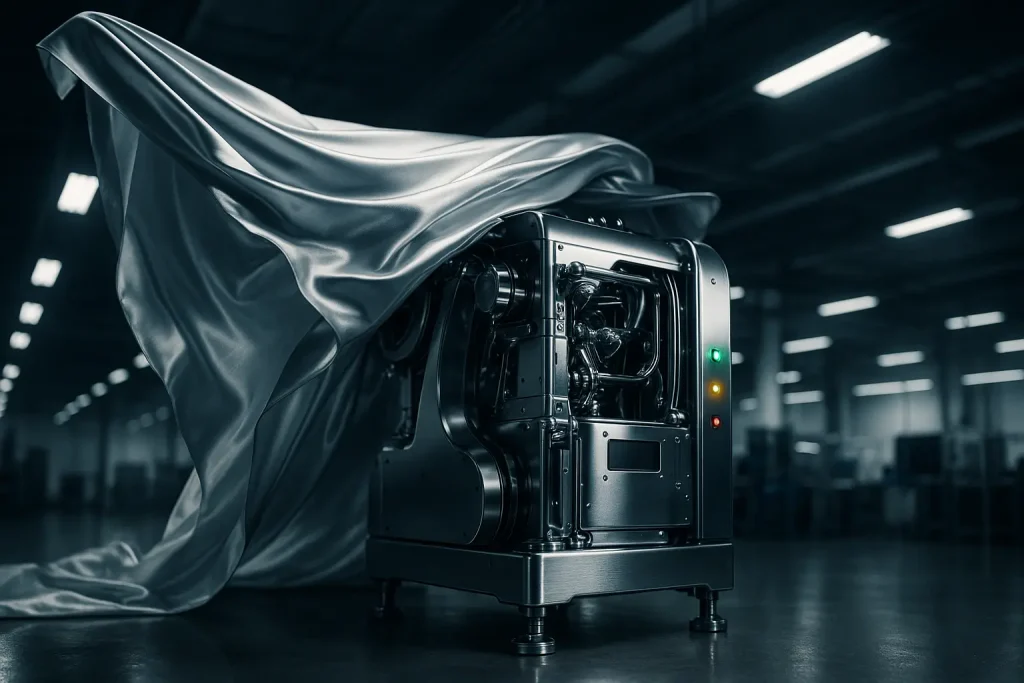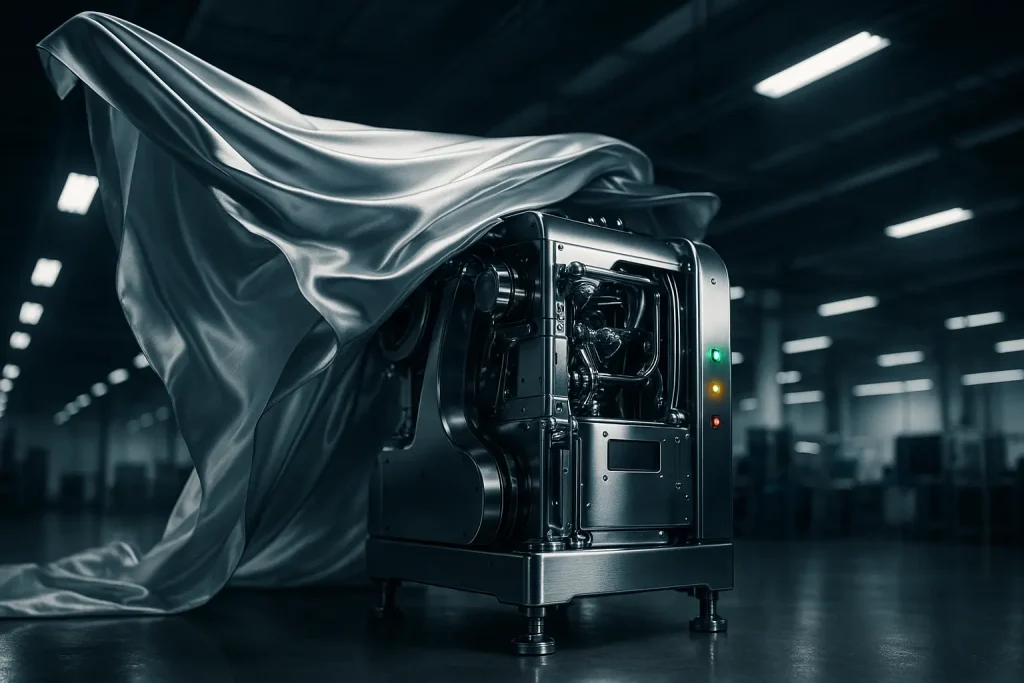Choosing the Right Capsule Filling Machine for Your Pharma Business
In the pharmaceutical industry, capsule filling machines are essential equipment for producing high-quality, consistent medication. Choosing the right machine can significantly impact your production efficiency, cost-effectiveness, and product quality. This guide will help you understand the key considerations when investing in a capsule filling machine for your business.
Overview of Capsule Filling Machines
A capsule filling machine is a device used to automate the process of filling pharmaceutical capsules with powders, granules, or liquids. These machines are widely used in pharma, nutraceuticals, and supplement manufacturing to increase production speed and ensure uniform dosing.
Capsule filling machines are generally classified into two types: hard gelatin capsule machines and soft gelatin capsule machines. Each type is designed to meet specific production requirements.

Hard vs. Soft Gel Capsule Machines
Hard Gel Capsule Machines
Hard gel capsules are typically filled with dry powders or pellets. Hard capsule filling machines can be manual, semi-automatic, or fully automatic, depending on your production scale. They are known for precision and versatility in handling a wide range of capsule sizes.
Soft Gel Capsule Machines
Soft gel capsules are usually filled with liquids or semi-solids. Soft gel capsule machines are more complex due to the need for specialized sealing and forming mechanisms. They are ideal for oil-based or liquid medications.

Features to Consider
When choosing a capsule filling machine, several features are critical to ensuring efficiency, ease of use, and product quality:
- Capacity: Determine your production volume requirements. Machines vary from small-scale laboratory models to large industrial units capable of filling thousands of capsules per hour.
- Automation Level: Fully automatic machines reduce labor costs and increase accuracy, while semi-automatic machines offer flexibility for small batches.
- Ease of Cleaning: Hygienic design and easy disassembly are crucial to comply with GMP (Good Manufacturing Practices) and avoid cross-contamination.
- Material Compatibility: Ensure the machine components are compatible with the powders or liquids you plan to fill.
Common Maintenance Practices
Maintaining a capsule filling machine properly can extend its lifespan and improve production reliability. Essential maintenance practices include:
- Regular lubrication of moving parts
- Routine cleaning to prevent residue buildup
- Checking and replacing worn-out components
- Periodic calibration for accurate filling

Cost Considerations: New vs. Used Machines
When budgeting for a capsule filling machine, you must weigh the pros and cons of new and used equipment:
New Machines: Higher upfront cost but come with warranties, advanced features, and longer service life.
Used Machines: More affordable but may require repairs, lack modern features, and have a shorter lifespan.
Investing in the right capsule filling machine requires balancing cost, production needs, and long-term operational efficiency.
Selecting the ideal capsule filling machine is a strategic decision for any pharmaceutical business. By considering the type of capsules, automation level, capacity, maintenance requirements, and cost, you can choose a machine that enhances your productivity and ensures high-quality output
Ready to upgrade your operations? For any inquiries regarding the import of new or used machinery, please email us at nsm@businesstacts.com. Don’t forget to follow our social handles for more pharma-related knowledge and industry updates!


